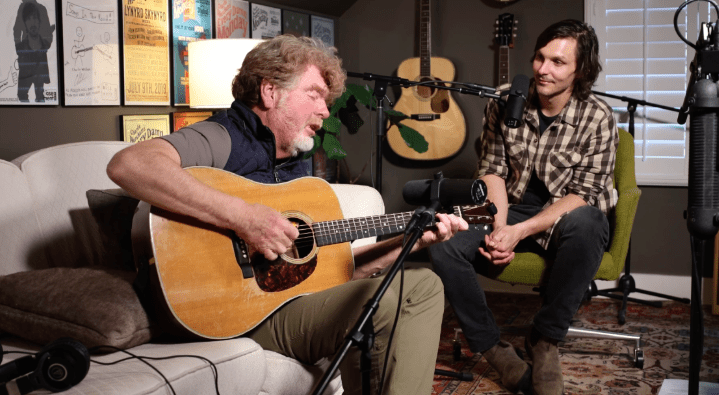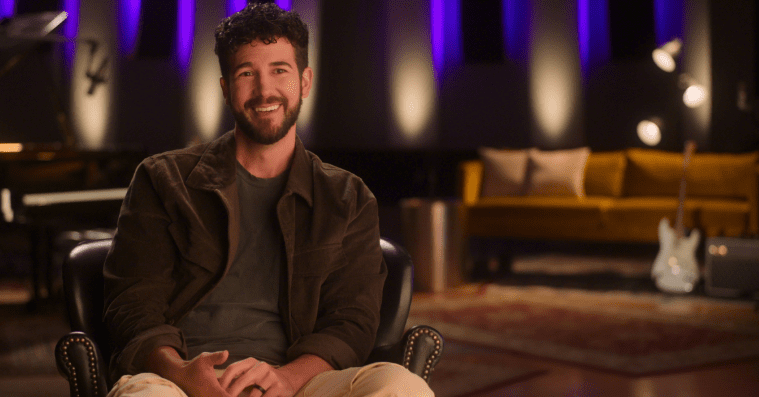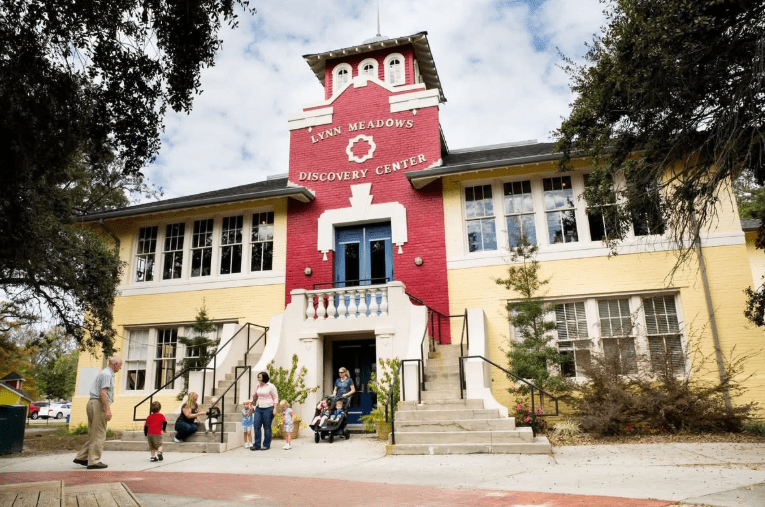
- This holiday, add some flavor to your playlist of Christmas standards with the soulful sounds of gospel music.
Gospel music’s deep Mississippi roots go all the way to the source. While you’re singing your favorite traditional Christmas carols this holiday, dip a toe into the gospel waters and see where the music takes you.
Here are four excellent places to start your gospel journey.
Roebuck ‘Pops’ Staples
The story of Roebuck “Pops” Staples, the leader of the gospel quintet The Staples Singers, goes back all the way to Dockery Farms plantation, where he watched early blues singers Charley Patton and Howlin’ Wolf perform. But he took the blues in a different direction. After moving to Chicago in 1936, he began singing with the Trumpet Jubilees, then decided to put together his own group in the late 1940s.
Recruiting the vocal talents of his kids Pervis, Cleotha, Yvonne, and Mavis, Pops fused gospel with the blues, and The Staples Singers recorded their first hit, “Uncloudy Day,” backed only by Pops’s guitar, which influenced Bob Dylan and was famously covered by Willie Nelson. The group was also important to the Civil Rights Movement with songs like “Respect Yourself” that encouraged listeners to stand up for themselves and demand equality. Pops later earned a Grammy, and the Staples Singers were inducted into the Rock and Roll Hall of Fame in 1999.
Sam Cooke
Clarksdale native Sam Cooke developed the chops that earned him the title “the King of Soul” by singing in gospel groups. After moving to Chicago with his family as a young child in the 1930s, he sang doo wop before joining the pioneering, gospel-focused Highway Q.C.’s in his teenage years. In 1951, he teamed up with the Soul Stirrers and took over the lead vocal spot. Cooke’s soul stylings are up front on hit “Jesus Gave Me Water,” released the same year, which established the group among the elite gospel groups of the era. After crossing over to mainstream R&B and pop in 1957, Cooke earned hits with songs like “Cupid,” “Wonderful World” and the Civil Rights anthem “A Change Is Gonna Come.”
Dorothy Moore
Although she’s best known for “Misty Blue,” her signature 1976 R&B hit, Dorothy Moore’s roots are in gospel music. Moore began singing in the choir at New Strangers Baptist Church in Midtown Jackson as a child in the 1950s, where she learned how to lead a group and wring every drop of emotion out of whatever she sang. After singing in talent contests at the Alamo Theater on Farish Street, she formed the singing group the Poppies, which recorded for Epic Records.
Moore moved to Jackson’s Malaco Records for her fruitful solo career, and finally returned to her roots with the gospel soul album Givin’ It Straight to You in 1986. The album put Moore back in front of a gospel choir as she sang songs like “What Is This,” a slow-burning tune written by Macon, Mississippi native Brother Joe May. Moore has been nominated for two Grammy awards and received a Mississippi Blues Trail marker in 2022.
Mississippi Mass Choir
Founded in 1988 by Jackson Southernaires singer and Malaco Records gospel chief Frank Williams, the Mississippi Mass Choir is the most famous of the modern gospel choirs.
The group’s self-titled debut album spent 45 weeks in the No. 1 spot of Billboard’s Top Gospel Albums and earned Choir of the Year-Contemporary and Best New Artist of the Year-Traditional honors at the 9th annual James Cleveland Gospel Music Workshop of America awards. Their follow-up, God Gets the Glory, won awards for Gospel Record of the Year and Gospel Artist of the Year from Billboard in 1992, and the group has since picked up multiple Grammy Award nominations and Dove and Soul Train awards while performing to audiences around the world — including Pope John Paul II.
More than 500 singers have passed through the MMC ranks, and the current configuration includes more than 50 people from all corners of the state and from as far away as Los Angeles. The group recorded its latest live album, 2024’s We Still Believe, at Word of Life Church in Flowood.











